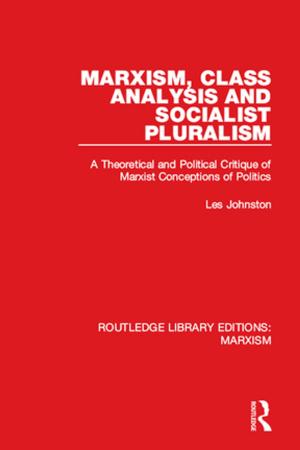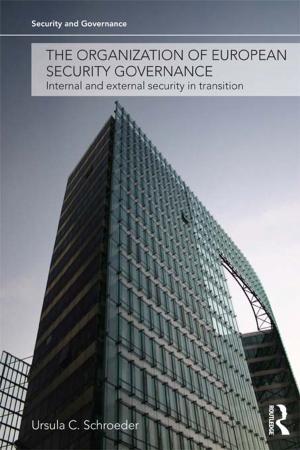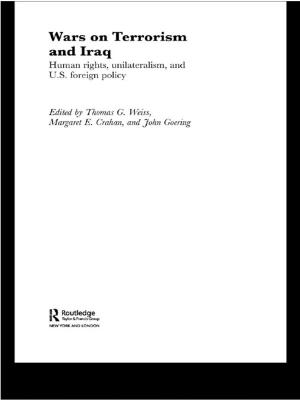Persistent State Weakness in the Global Age
Nonfiction, Social & Cultural Studies, Political Science| Author: | Vesna Bojicic-Dzelilovic | ISBN: | 9781317082057 |
| Publisher: | Taylor and Francis | Publication: | May 13, 2016 |
| Imprint: | Routledge | Language: | English |
| Author: | Vesna Bojicic-Dzelilovic |
| ISBN: | 9781317082057 |
| Publisher: | Taylor and Francis |
| Publication: | May 13, 2016 |
| Imprint: | Routledge |
| Language: | English |
Persistent State Weakness in the Global Age addresses the question of why state weakness in the global era persists. It debunks a common assumption that state weakness is a stop-gap on the path to state failure and state collapse. Informed by a globalization perspective, the book shows how state weakness is frequently self-reproducing and functional. The interplay of global actors, policies and norms is analyzed from the standpoint of their internalization in a weak state through transnational networks. Contributors examine the reproduction of partial and discriminatory rule at the heart of persistent state weakness, drawing on a wide geographical range of case studies including the Middle East, the Balkans, the post-Soviet states and sub-Saharan Africa. The study of state-weakening dynamics related to institutional incapacity, colonial and war legacies, legitimacy gaps, economic informality, democratization and state-building provides an insight into durability and resilience of weak states in the global age.
Persistent State Weakness in the Global Age addresses the question of why state weakness in the global era persists. It debunks a common assumption that state weakness is a stop-gap on the path to state failure and state collapse. Informed by a globalization perspective, the book shows how state weakness is frequently self-reproducing and functional. The interplay of global actors, policies and norms is analyzed from the standpoint of their internalization in a weak state through transnational networks. Contributors examine the reproduction of partial and discriminatory rule at the heart of persistent state weakness, drawing on a wide geographical range of case studies including the Middle East, the Balkans, the post-Soviet states and sub-Saharan Africa. The study of state-weakening dynamics related to institutional incapacity, colonial and war legacies, legitimacy gaps, economic informality, democratization and state-building provides an insight into durability and resilience of weak states in the global age.















